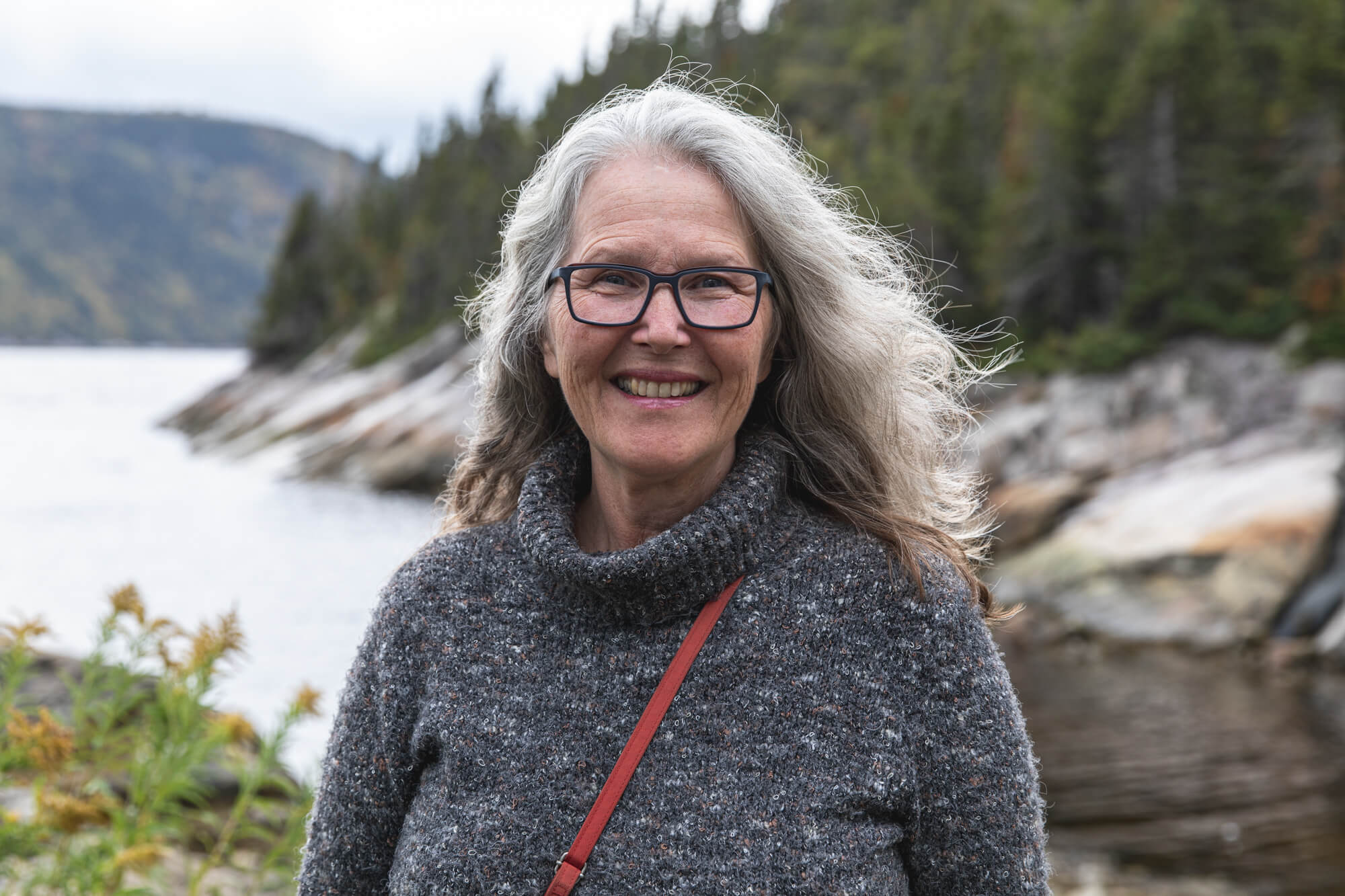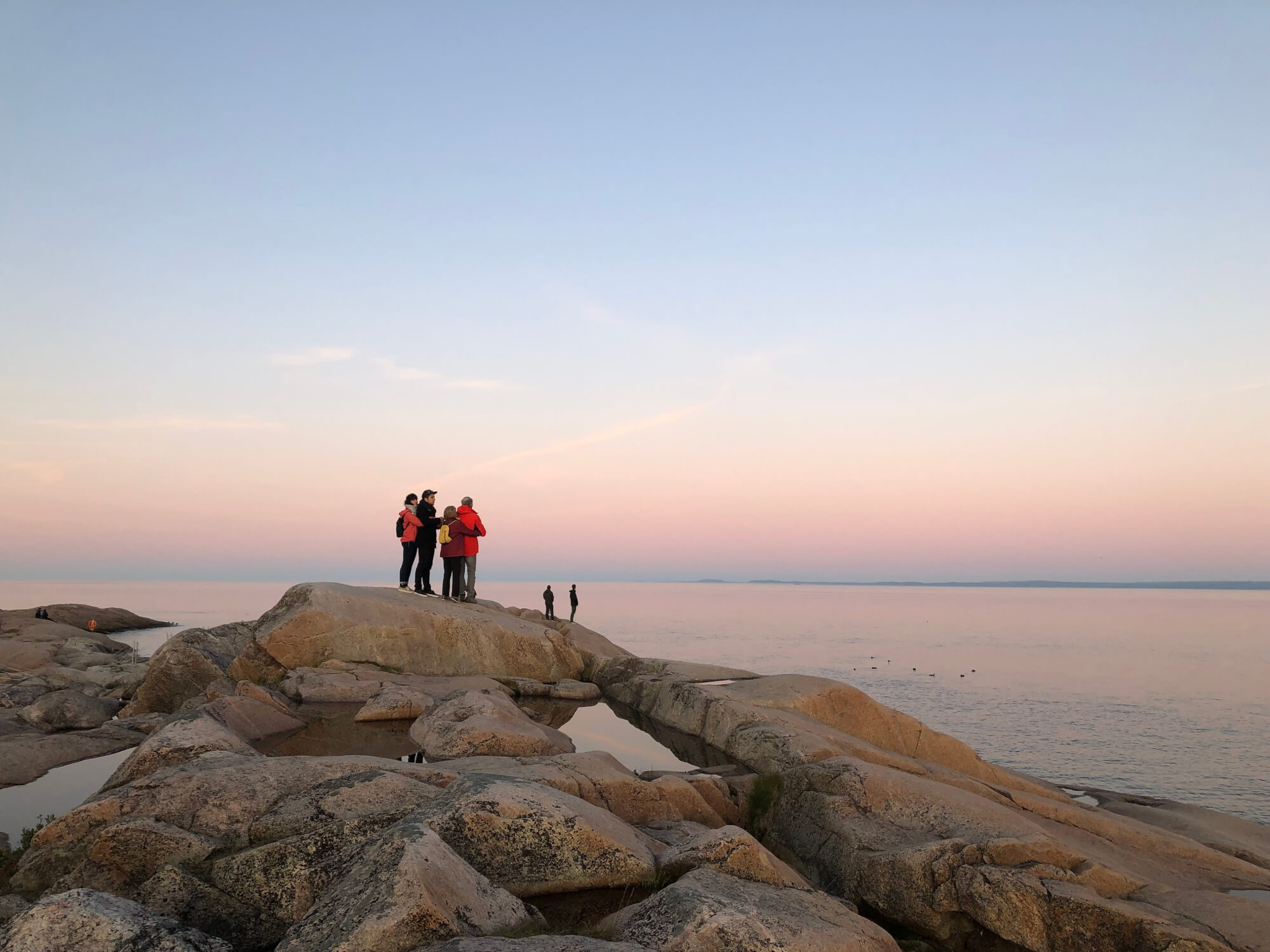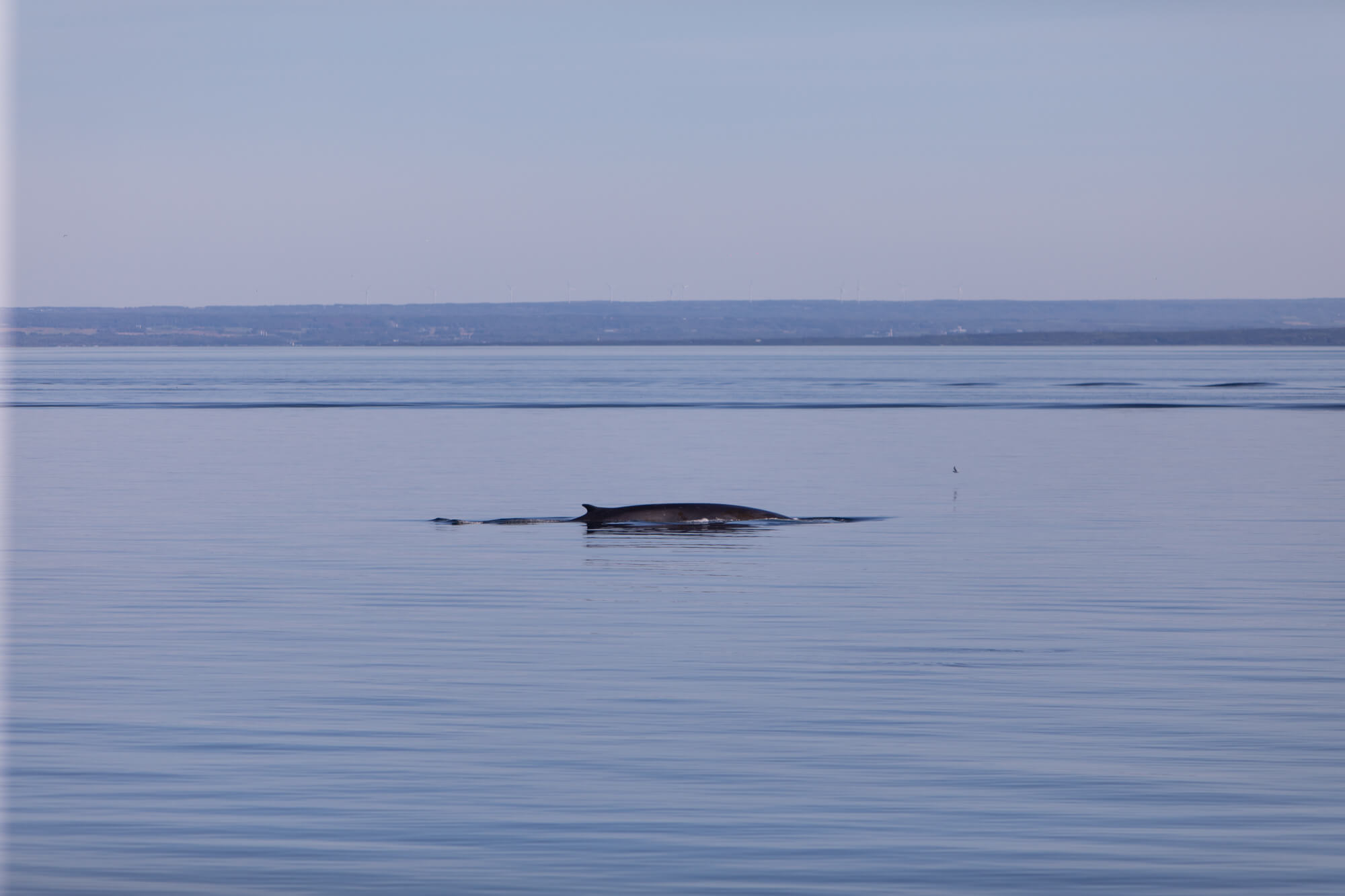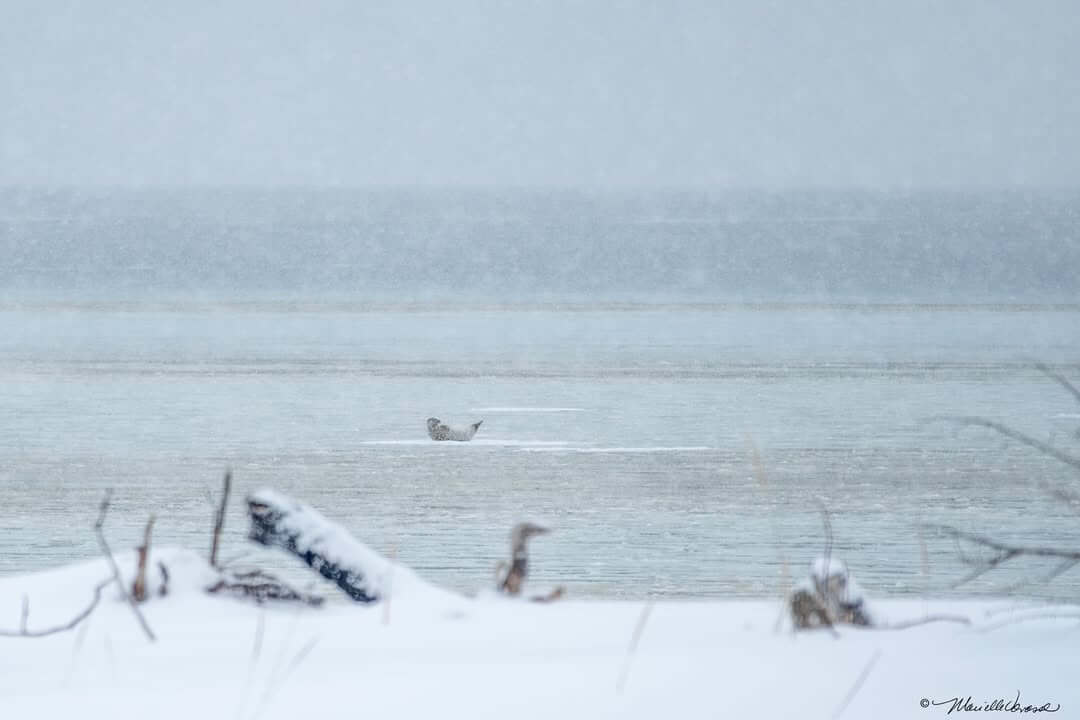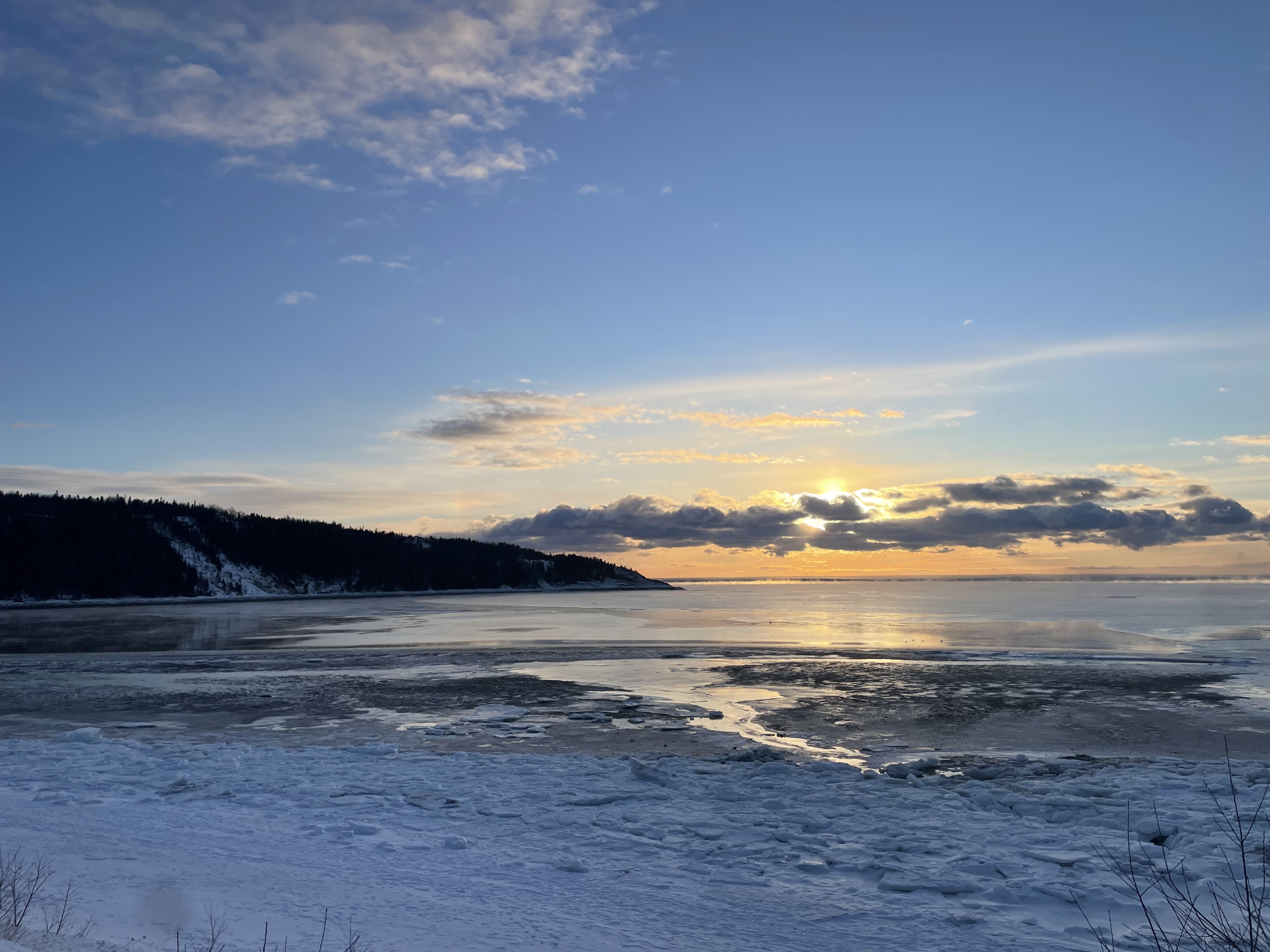This article is part of a series of portraits of people involved in some way with whales on the North Shore. Of Quebec As part of the Whale Route Documentation Project, meet these colourful characters who define the face of the region. Discover their stories that will bring you to life or relive the wonderful stories of the St. Lawrence River and its giant marine creatures!
A retired teacher from the Cégep de Saint-Hyacinthe, Huguette Thibeault has taught ecology and natural sciences for more than 20 years. She is currently President of Science on Stage Canada. She is a passionate, year-round observer of marine mammals when she visits her daughters on either side of the St. Lawrence, specifically in Baie-Comeau and Rimouski. This scientist is fascinated by the River!
For her, education is an indispensable tool to better understand the environment in which we live and to better protect our natural ecosystems.
Microbiologist by trade, Huguette has spent countless hours as a researcher hunched over her microscope studying bacteria. Compared to the infinitely tiny, Huguette says that nothing compares to the immensity of marine mammals.
“The environment can be taught and studied. But there’s nothing like seeing it, living it. Nothing can compare to being out in the field and hearing the sound of a blowing whale.” – Huguette Thibeault
As a teacher, Huguette often used the little stream flowing behind the Cégep de Saint-Hyacinthe as part of her course on freshwater ecology. Year after year, she had her students perform an assessment of the state of health of the stream. This one being in an agricultural environment, it receives all sorts of chemicals, pesticides and fertilizers. It flows into the Yamaska River (Quebec’s most polluted tributary), which in turn empties into the St. Lawrence. She describes it as the ripple effect. Or as Huguette says more intimately: “from the Yamaska to the belugas!” In addition to having made an impression on the many students who have studied the stream, she recalls the impact we have on our ecosystem and marine mammals, even if we sometimes feel far away from the St. Lawrence and its inhabitants. “Whales are somewhat limited to what is offered to them as a natural environment,” she adds.
“The environment can be taught and studied. But there’s nothing like seeing it, living it. Nothing can compare to being out in the field and hearing the sound of a blowing whale!” she says.
An avid camper, Huguette sets up her tent in Les Bergeronnes several times a year to experience nature “in real time”, as she likes to put it. She describes this setting as her very own paradise, where she takes the time to reconnect with her surroundings and view whales in close proximity, even from the shoreline! She can hear the cetaceans breathing practically right next to her!
Her “sure-fire” whale-watching strategy is to sleep near the rocks at the Paradis Marin campsite, alongside the whale corridor. “You park yourself on your favourite boulder at sunrise and then a whale shows up and blows right next to you. It reminds me that I need to breathe, too! For me, this is how I meditate and clear my mind. To offer yourself that chance to disconnect is both magical and priceless!” says Huguette.


